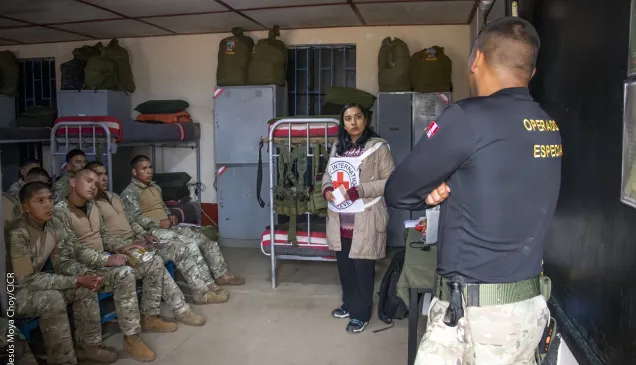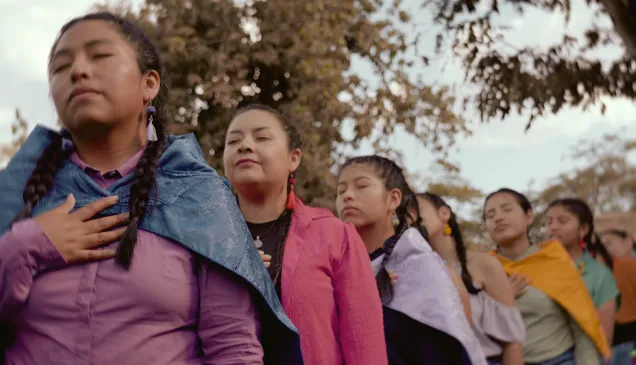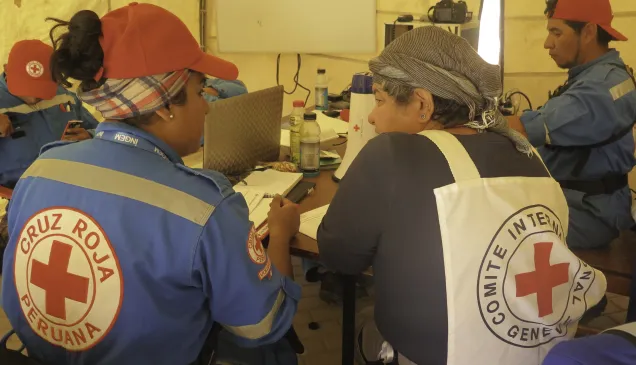Dialogues for informed vaccination
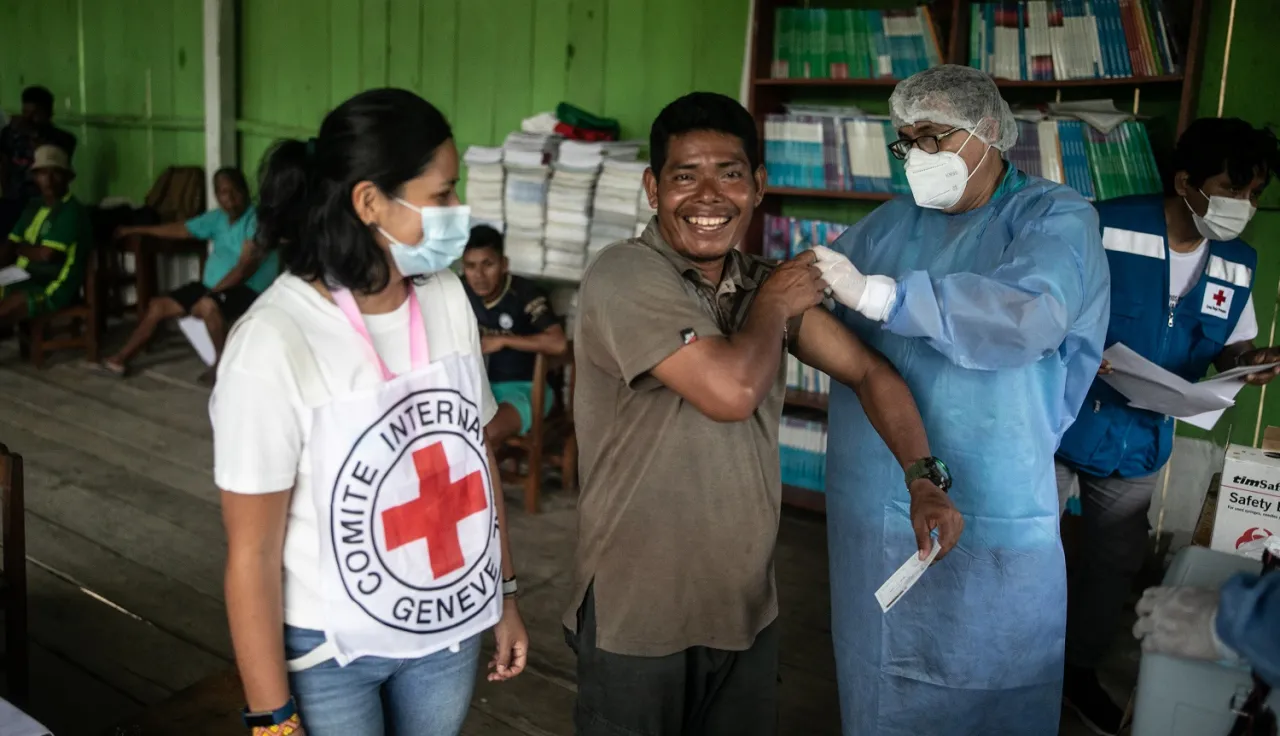
COVID-19 vaccination uptake in indigenous communities in Peru.
The American continent has recorded the highest number of COVID-19 deaths globally since the start of the pandemic. Access to vaccination is limited for the most vulnerable communities and vastly unequal. While in some countries 90% of the population are fully vaccinated, in others the proportion is not even 20%, further widening the social and economic inequality gap in this part of the world.
Two years on from the start of the pandemic, Peru tops the global COVID-19 mortality ranking, with a rate of 627 deaths per 100,000 inhabitants. The country has recorded over 209,000 COVID-19-related deaths and almost 3.5 million infections, yet only 40% of people in Amazonian communities have been vaccinated against COVID-19, according to the Ministry of Health.
Peru's indigenous communities in hard-to-reach areas with geographically diverse terrain, including Amazon rainforest and mountainous landscapes, have limited access to health services and information.
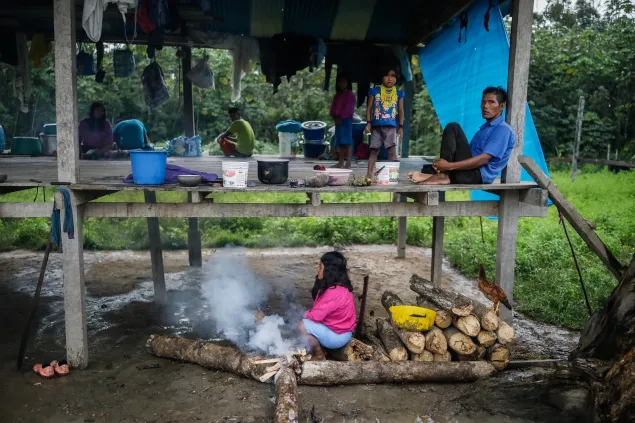
Vaccination roll-out is less advanced in Amazonian communities than in urban areas.
The agile vaccination roll-out in cities contrasts starkly with the slow pace of delivery to communities living deep in forest or mountain areas, and this problem is further compounded by the misinformation, fear and rumours circulating in these areas.
The International Red Cross and Red Crescent Movement, together with Peruvian Red Cross (PRC) leaders, has coordinated efforts with the Ministry of Health and indigenous organizations to promote community dialogue, based on an intercultural approach, with a view to jointly designing measures, delivering information and promoting COVID-19 vaccination uptake among indigenous people living in these inaccessible areas.
Thanks to these efforts, 2,756 people in 70 Amazonian communities in the regions of Ucayali, Loreto and San Martín have received at least one dose of the COVID-19 vaccine. Additionally, 623 people in 26 rural communities in the regions of Puno and Áncash received at least one jab.
We didn't even know the COVID-19 virus existed. It's the first we've heard of it. Thank you for the information.
Reaching remote areas
Getting to these hard-to-reach places requires the help of a local team that can liaise with the communities to obtain the authorizations the awareness and vaccination units need to gain access.
The teams that carry out this work, formed by health-care personnel and PRC specialists and supported by the International Federation of Red Cross and Red Crescent Societies (IFRC) and the International Committee of the Red Cross (ICRC), have to travel three days upriver on a boat, enduring heavy rains and negotiating fallen trees, to get to the community of Mangual located in the meanders of the Chambira River in the Amazon, a place that has not seen a visit from a health team for several years.
Dry ice is used to refrigerate the vaccines for the journey upriver through the tropical rainforest, where temperatures range from 30 ºC to 38 ºC.
The Red Cross river boats also take health-care and humanitarian personnel, information and vaccines to the Lake Imiría basin in the Ucayali region. In these communities, radio is still the main means of communication and is used to broadcast messages.
Segundo Mozombite, who lives in the area, explained that the internet is slowly and gradually reaching some of the settlements there, which means that they get information about COVID-19 via WhatsApp. "People create groups or call each other saying the vaccine is the '666' mark and implants a microchip in you."
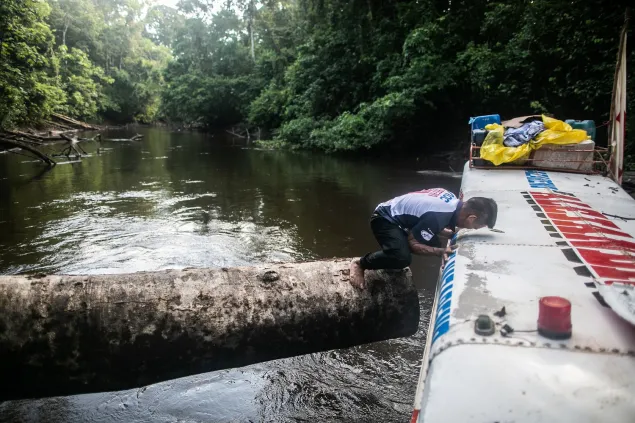
The team transporting the vaccines has to manoeuvre around a natural obstacle in their way on the journey upriver.
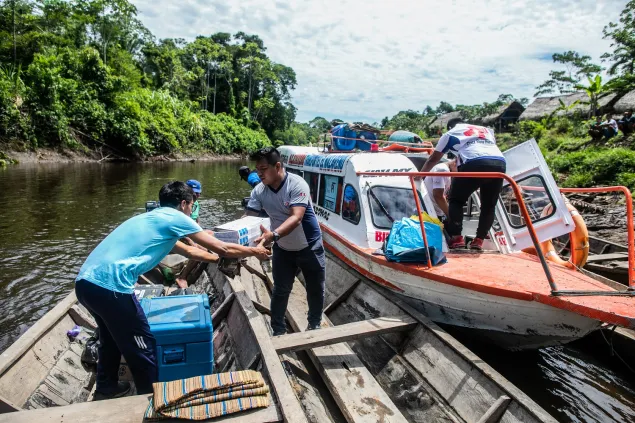
The refrigerated vaccines are transported on motorized river boats and then transferred to lighter canoes that take them to the communities.
Community dialogue at the core of the initiative
The team's priority when it gets to the community is to understand people's needs and concerns about the virus, assess their health and promote community dialogue. So far, 2,760 people have attended 75 community assemblies, which aim to ensure that their right to information and vaccination is guaranteed and that the independence and representativeness of the community is respected.
According to the Ministry of Health, the low rate of vaccination among indigenous people can be attributed to a variety of factors, including lack of access to vaccination and fear caused by the misinformation they have received about it.
"What I know is that COVID kills people. That hasn't happened in our community yet, but I've decided to get vaccinated to make sure I don't get ill because merchants coming upriver can bring the virus with them", explains a woman from the Santa Hermosa community.
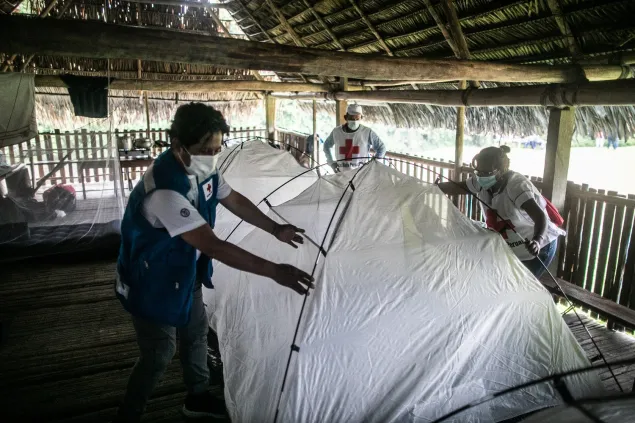
Personnel from the PRC and the International Red Cross and Red Crescent Movement set up in the community before starting their work.
Concerns about vaccination are addressed in the community's own language, based on scientific evidence. In addition, with loudspeakers, megaphones, caravans and home visits, the team members inform the community and hand out leaflets and biosafety materials.
Community members making informed decisions to get vaccinated
"I was convinced by the clear explanation they gave, and I would like to see other people who are hesitant get vaccinated for their own well-being and that of their families," says José, who went to get his first jab after his doubts about the vaccine had been cleared up. Vaccination is carried out by the Ministry of Health, and surveys are conducted to understand people's interest and views about the first and second doses.
It's quite an achievement, and it gives me great satisfaction as a nurse to see people coming happily to get vaccinated because they know they will be protected and will come back for their second jab. It motivates us and gives us the strength we need to carry on fighting this virus.
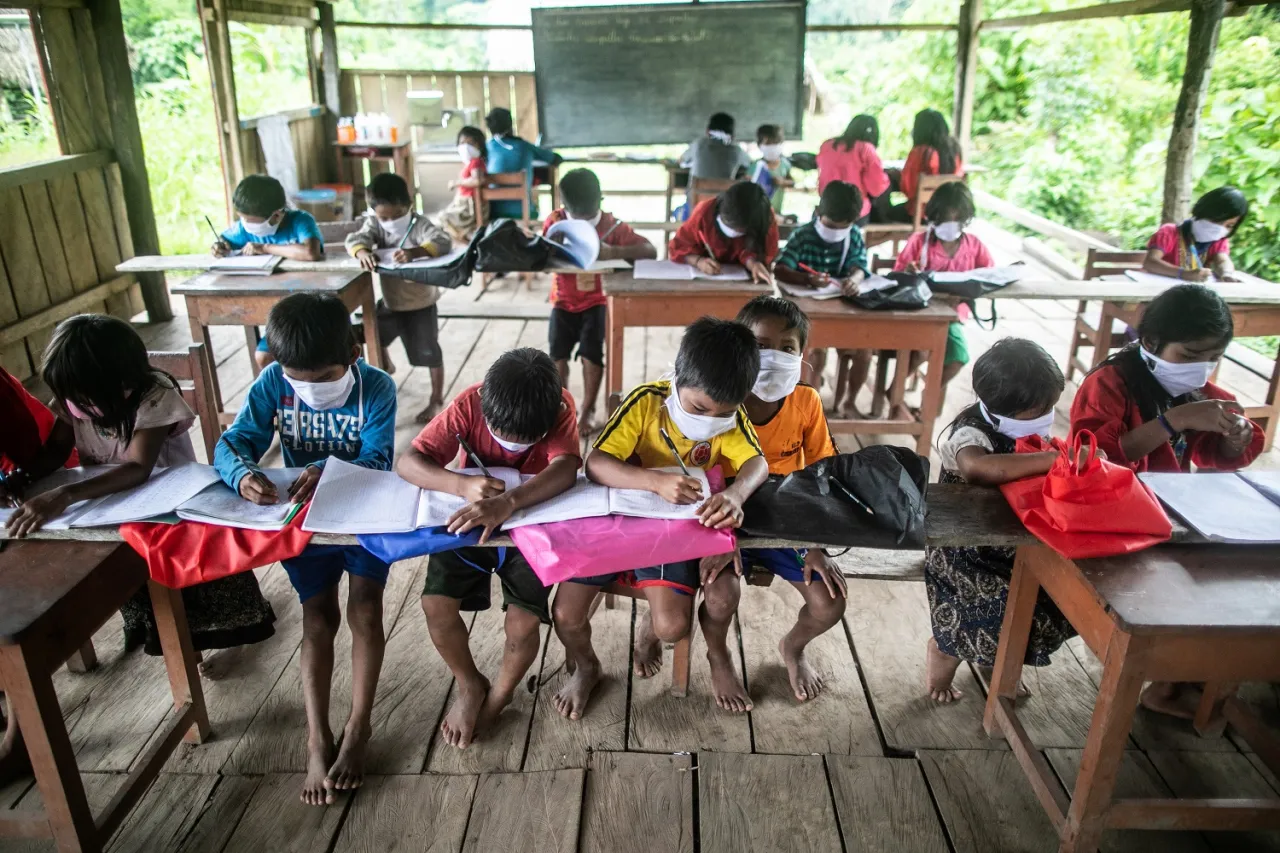
Photo: Sebastián Castañeda/ICRC
Meanwhile, in communities in the Andean highlands – some located at more than 3,800 m above sea level – access to vaccination has been hindered by the difficult topographic conditions and misinformation.
Teams in the field talk to the communities there in Quechua, their native language, answering any questions they may have. As observed by Julio Mendigure, executive director of Indigenous Peoples at the Ministry of Health, their main concerns about the vaccination include fears that it is being used as a method for sterilizing women, that it may affect men's sexual performance, that it could lead to death and that the virus is a divine punishment.
We are institutionalizing the intercultural dialogue on vaccination against COVID-19.
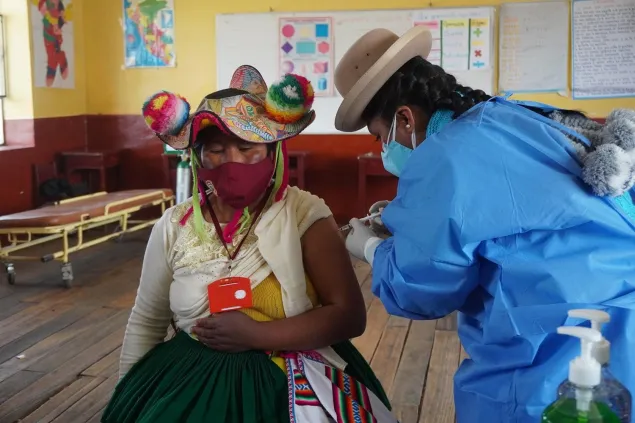
A woman from the highland area of Puno is vaccinated by local Ministry of Health personnel.
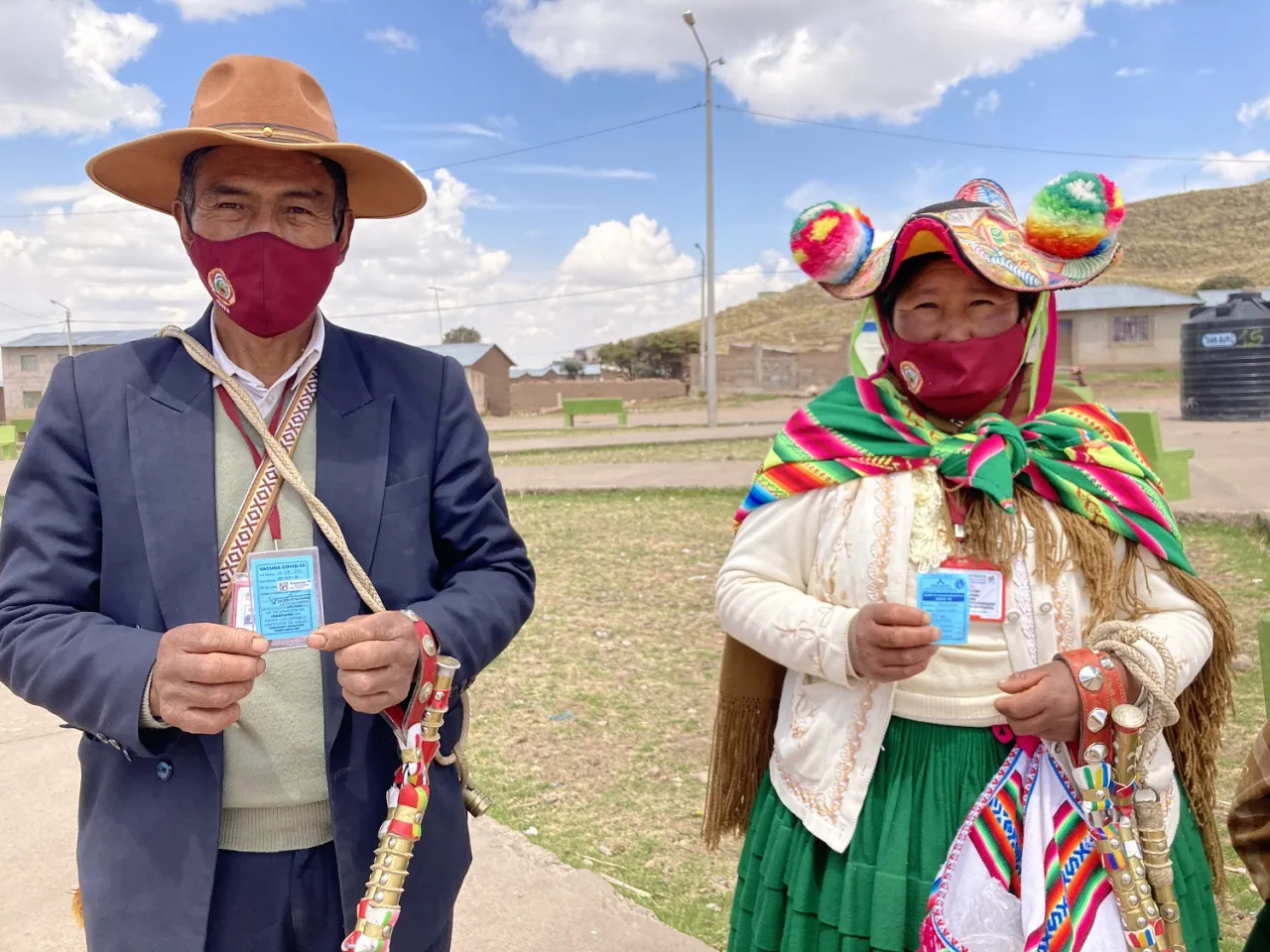
Photo: Melissa Alleant/IFRC
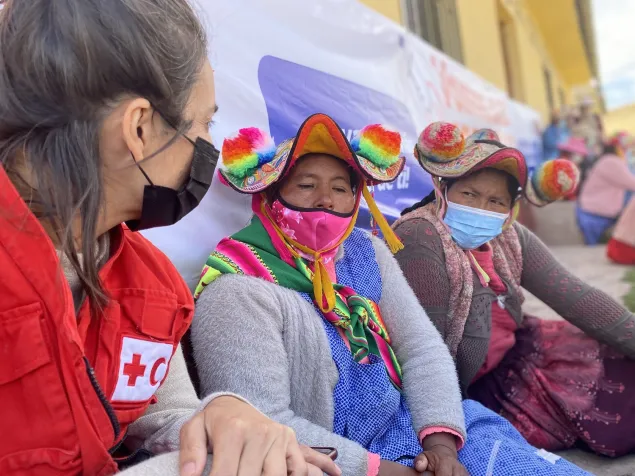
The concerns of women from the highland area of Puno are allayed by Red Cross personnel.
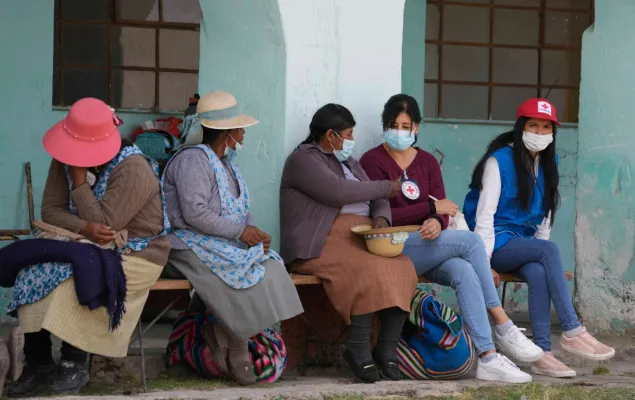
Women from the Mijane community talk with Red Cross personnel in Puno.
The daughter of Rufina Luque, who lives in Puno, contracted COVID-19. She was asymptomatic to begin with, but then began to get worse. Before she saw her daughter sick, Rufina did not really believe in vaccination, but after getting her first jab, she reflected: "We must all get vaccinated; it's not a cure, but it protects us".
As part of this process of listening and sharing knowledge, the PRC brings these communities all the information they need. This means that they can have the vaccine safe in the knowledge that the government's vaccination programme is being implemented to protect the health of its citizens.
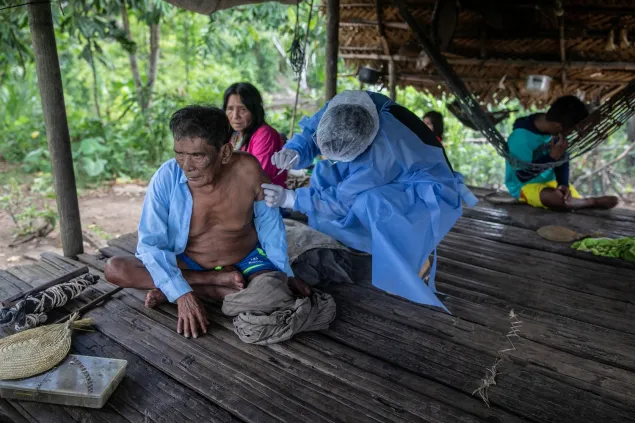
Health-care personnel visit the homes of older people to vaccinate them.
Back in the Amazonian region of Ucayali, Cecilia Brito recalls that before the teams came to raise awareness and vaccinate the population, there was a lot of false information going around. She is the Shipibo representative of ORAU, the Ucayali Regional Organization of the Interethnic Association for the Development of the Peruvian Rainforest (AIDESEP), which carried out a survey in May 2021 that revealed that over half of all indigenous people were against getting vaccinated.
"In response to this situation, the organizations have come together to answer people's questions, providing clear and transparent information. This has enabled us to achieve the goal of getting people vaccinated", explains Cecilia.
Myriam Ríos is a qualified nurse at the Bella Flor health post in Ucayali and has been working and living in the community for 18 years. At first, she had her doubts about the pre-vaccination awareness activities, but when she saw the turnout and answered the questions her own patients put to her, her confidence in the process grew.
"I was nervous but had very positive expectations. In the end, it was a great success because there were people who believed some of the myths and misinformation and said they weren't going to get vaccinated but then, after the awareness sessions, they were the first to get vaccinated", she remarks.
Addressing COVID-19, just one of many needs in remote communities
Although efforts to promote safe and informed vaccination are going well, people in these communities face a raft of challenges on a daily basis. In the community of Mangual, poor sanitary conditions make it difficult to establish good hygiene practices, such as handwashing, because the groundwater they pump is unsuitable for human consumption. "We suffer from malaria, diarrhoea, headaches and conjunctivitis", laments community leader Mariano Quisto.
The work of the PRC and the International Red Cross and Red Crescent Movement, together with the Ministry of Health, has involved addressing the concerns of the population and promoting the deployment of comprehensive health-care units throughout this initiative carried out in the community.
Working with the Ministry of Health and indigenous organizations, the Red Cross will continue to promote the right to health, information, informed decision-making and free and voluntary vaccination. It is an ethical priority to ensure that the most vulnerable and marginalized communities have reliable information and access to vaccination to ensure their protection and well-being.
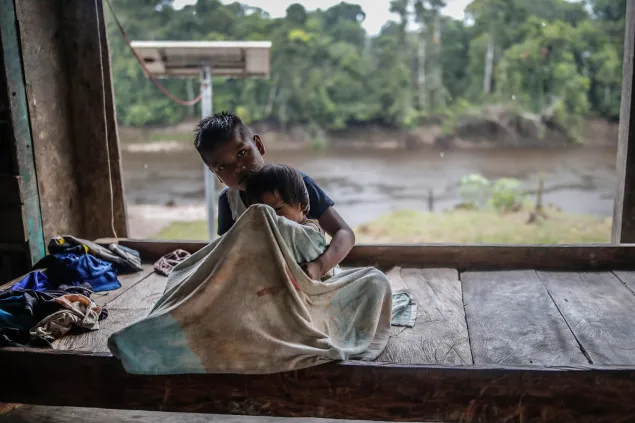
Two brothers shelter from the rain at home.
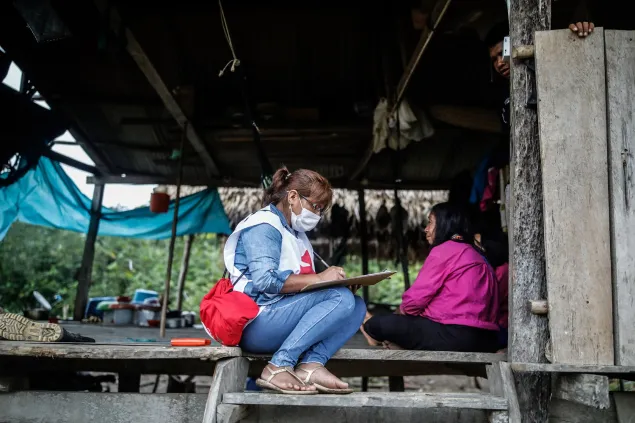
Red Cross personnel visit community members at home to conduct perception surveys and interviews.
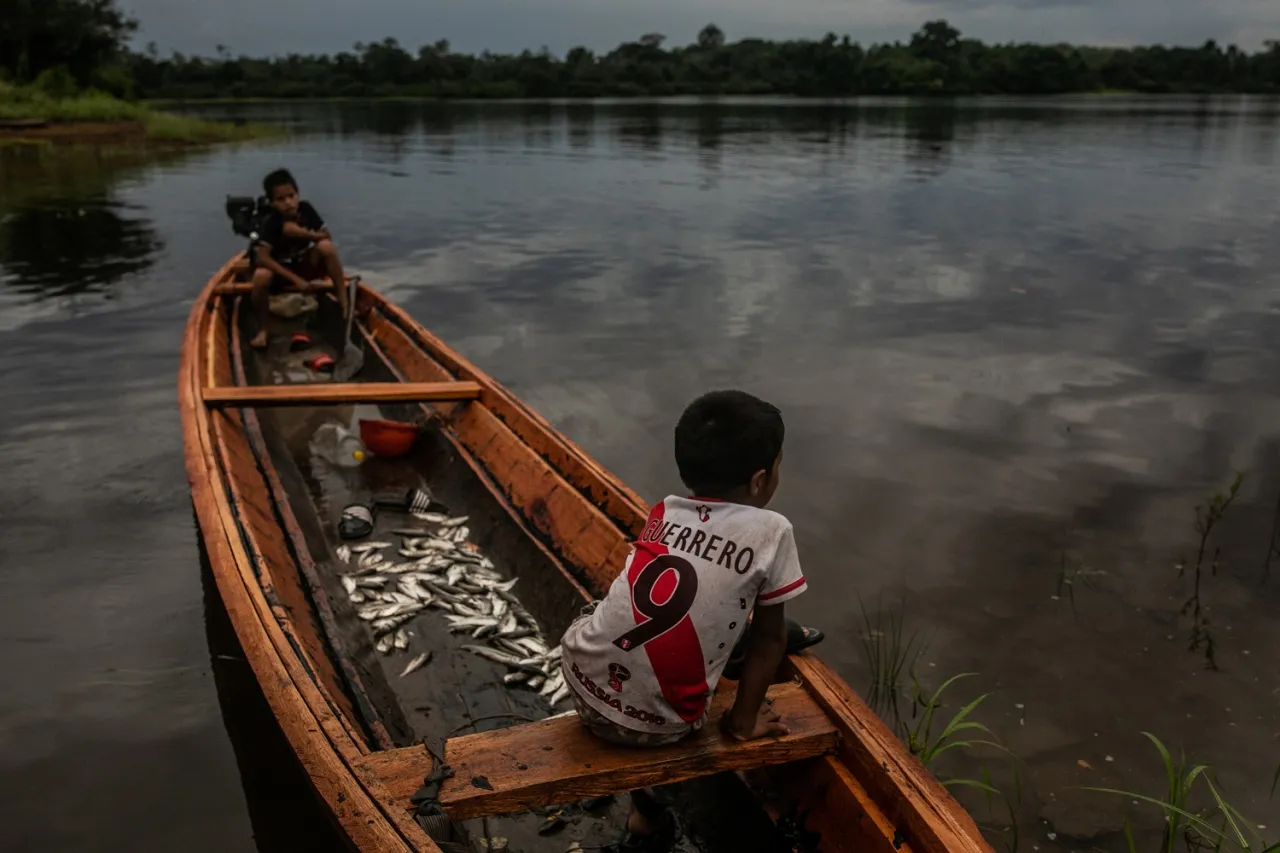
Photo: Sebastián Castañeda/ICRC

